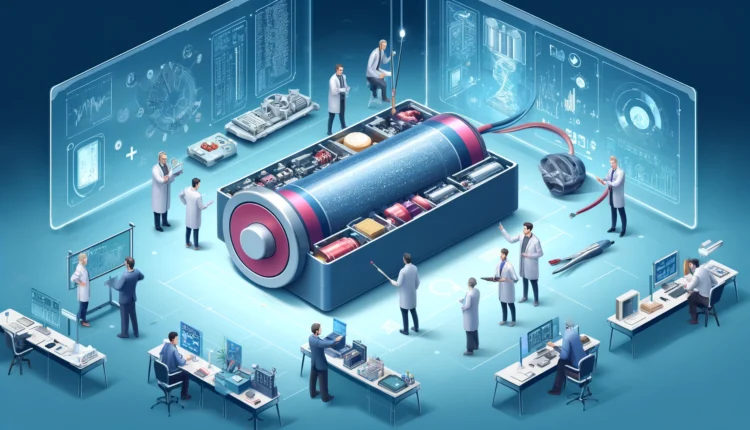Harnessing Power: The Essentials of Lithium-Ion Batteries
Lithium-ion batteries are ubiquitous in today’s high-tech world, powering everything from smartphones and laptops to electric vehicles and renewable energy storage systems. Understanding how these batteries work, their advantages, potential risks, and maintenance requirements can help you optimize their use and extend their lifespan. This article aims to demystify lithium-ion batteries for you, offering practical tips and addressing frequently asked questions.
Contents
What Are Lithium-Ion Batteries?
Lithium-ion (Li-ion) batteries are a type of rechargeable battery technology that has revolutionized the energy storage industry. They operate on the principle of moving lithium ions between the cathode and anode of the battery via an electrolyte. This process occurs during the charging and discharging cycles.
Advantages of Lithium-Ion Batteries
High Energy Density
One of the standout features of lithium-ion batteries is their high energy density. Compared to other types of batteries like nickel-cadmium or lead-acid, Li-ion batteries can store more energy per unit of weight. This makes them ideal for weight-sensitive applications such as mobile devices and electric vehicles.
Long Life Span
Lithium-ion batteries also have a longer life span. They can typically handle hundreds to thousands of charge-discharge cycles before their capacity falls significantly. This durability translates to less frequent replacements and a better return on investment over time.
Low Self-Discharge
Another benefit of Li-ion batteries is their low self-discharge rate. Once charged, Li-ion batteries lose their charge very slowly, making them more efficient for long-term storage compared to alternatives.
Practical Tips for Using Lithium-Ion Batteries
Optimal Charging Practices
Keeping your Li-ion battery charged between 20% and 80% can maximize its lifespan, as deep discharging can stress the battery and reduce its overall life expectancy.
Temperature Considerations
Li-ion batteries are sensitive to extreme temperatures. It’s best to store and use them in conditions between 10°C and 30°C. Extreme cold can reduce their efficiency, while high temperatures can lead to battery degradation or even safety risks.
Regular Use
Regular use and proper charging help maintain the health of Li-ion batteries. Allowing a battery to sit unused for long periods can lead to decreased performance and lifespan.
Safety Tips
Avoid Physical Damage
Physical damage to a lithium-ion battery can lead to dangerous leaks or fires. Ensure that your battery is permanently housed in a device that protects it from impacts or punctures.
Use the Correct Charger
Always use the charger provided with your device or one that the manufacturer recommends explicitly. Incorrect charging voltages can harm your battery and pose a safety risk.
FAQs About Lithium-Ion Batteries
How does a lithium-ion battery work?
A lithium-ion battery stores electrical energy by moving lithium ions from the negative electrode (anode) to the positive electrode (cathode) during charging. When the battery discharges, the ions move back to the anode, releasing energy.
What are the signs that a lithium-ion battery needs replacing?
Common signs include the battery not holding a charge as long as it used to, the device powering off unexpectedly, or the battery becoming unusually warm during use or charging.
Are lithium-ion batteries dangerous?
While lithium-ion batteries are generally safe, they can pose a fire risk if damaged or improperly handled. Ensuring proper use and storage conditions significantly minimizes any risks.
How can I dispose of lithium-ion batteries safely?
Do not throw lithium-ion batteries in the trash. They should be taken to a designated battery recycling facility or a local hazardous materials management facility that accepts batteries.
Can I repair a lithium-ion battery myself?
It is not recommended to attempt to repair lithium-ion batteries yourself due to the complex and hazardous nature of their chemicals. Always seek professional assistance.
Conclusion
Lithium-ion batteries have transformed how we use and store energy in modern devices and vehicles. By understanding the basic principles of how these batteries function, following best practices for maintenance and safety, and staying informed about their capabilities and limitations, you can make the most out of this remarkable technology. Whether you’re a tech enthusiast or simply a consumer looking to optimize your device’s battery life, knowledge about lithium-ion batteries is precious. Remember, proper care not only extends the life of your battery but also enhances your overall experience with numerous electronic devices.



Comments are closed.